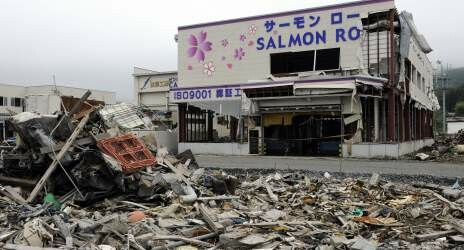
As a result of these two events, the Fukushima Daiichi nuclear power plant was also severely damaged, sparking widespread concern over potential nuclear hazards and their impacts on the affected population. This series of events marked an unprecedented ‘triple disaster’, causing great damage and destruction to buildings, infrastructure and livelihoods, and raised serious concerns over the quality of disaster management systems in highly developed countries like Japan.
The University of Sydney commemorated the first anniversary of these disasters, also known as the ‘3-11 events’, by organising an international conference to explore how socio-legal norms may have differed significantly in Japan between natural and man-made or ‘artificial’ disasters. The conference brought together a range of participants including academics, governments, law societies and humanitarian practitioners. Opening speeches were made by the Hon. Robert McClelland MP, Australian Federal Minister for Emergency Services, as well as Dr. Masahiro Kohara, the Consul-General of Japan in Sydney.
The main themes discussed at the conference included disaster-related socio-cultural and political-economic norms and practices in Japan; regulatory frameworks and other legal norms in Japan; and the relevant international frameworks for disaster cooperation. Comparisons were also made with other disaster frameworks and response efforts undertaken in Indonesia, China, New Zealand and the USA.
The presentations made at the conference are expected to be published in the Journal of Japanese Law.